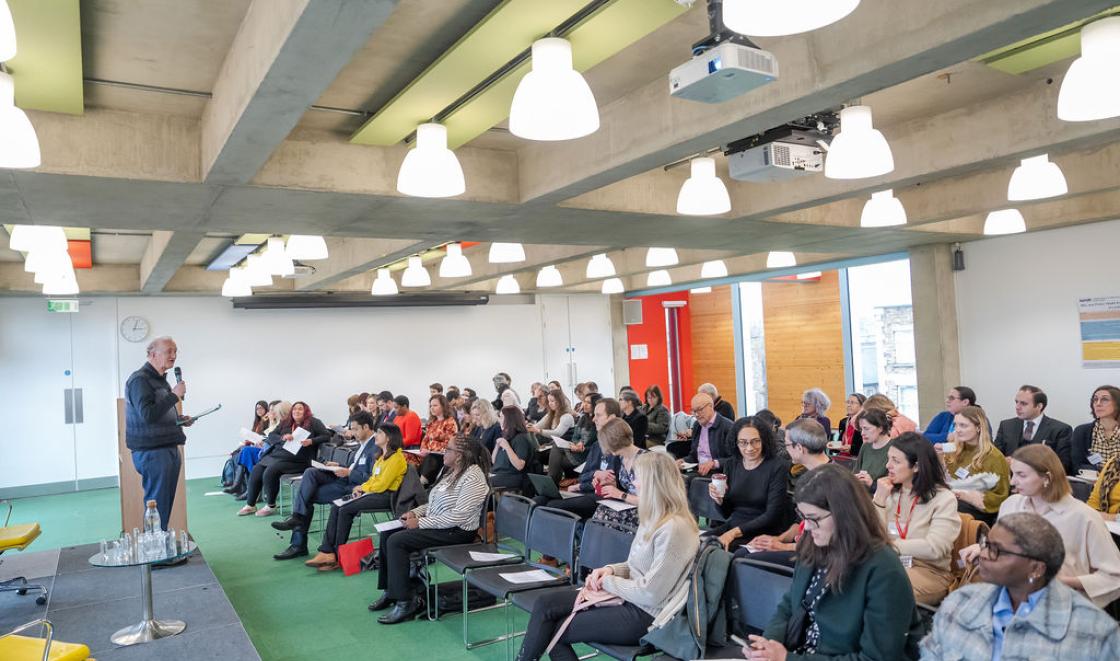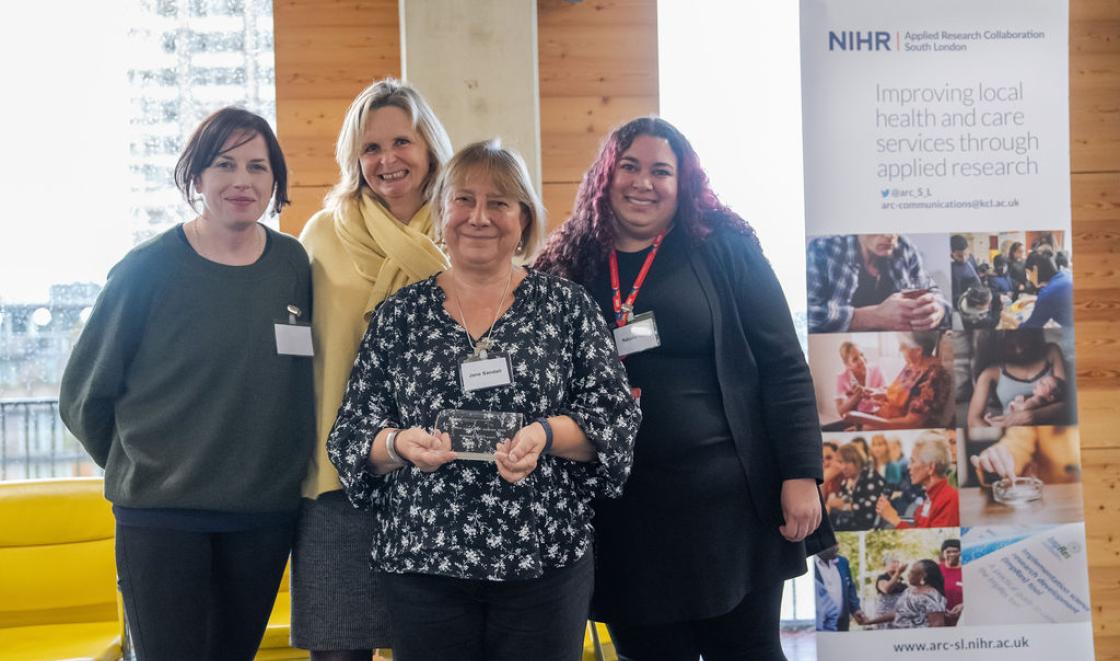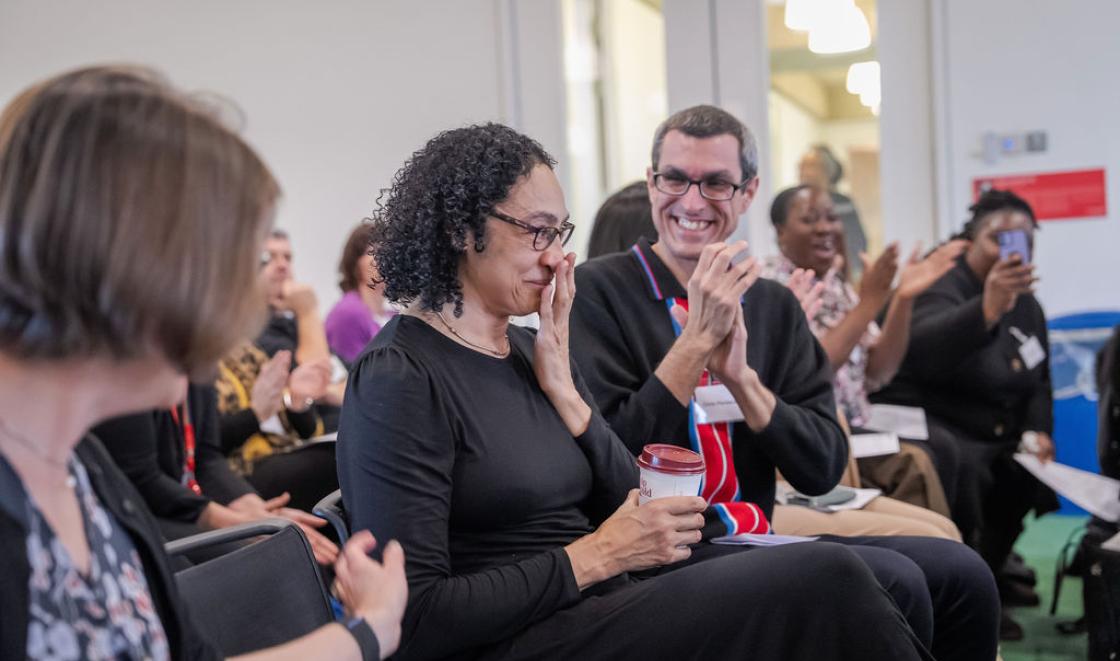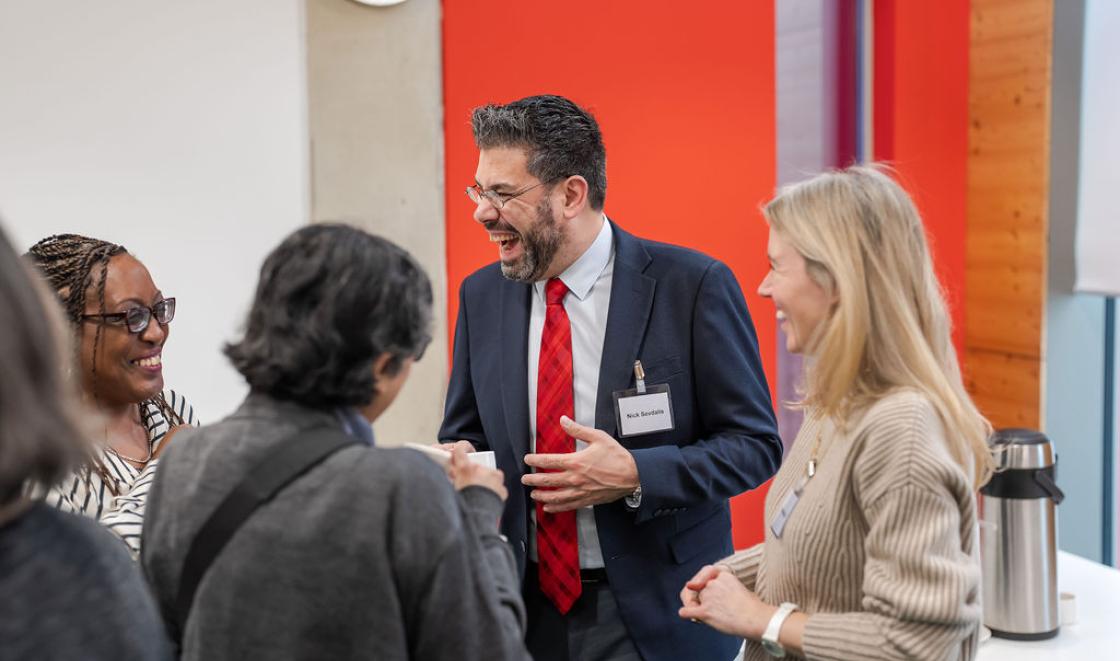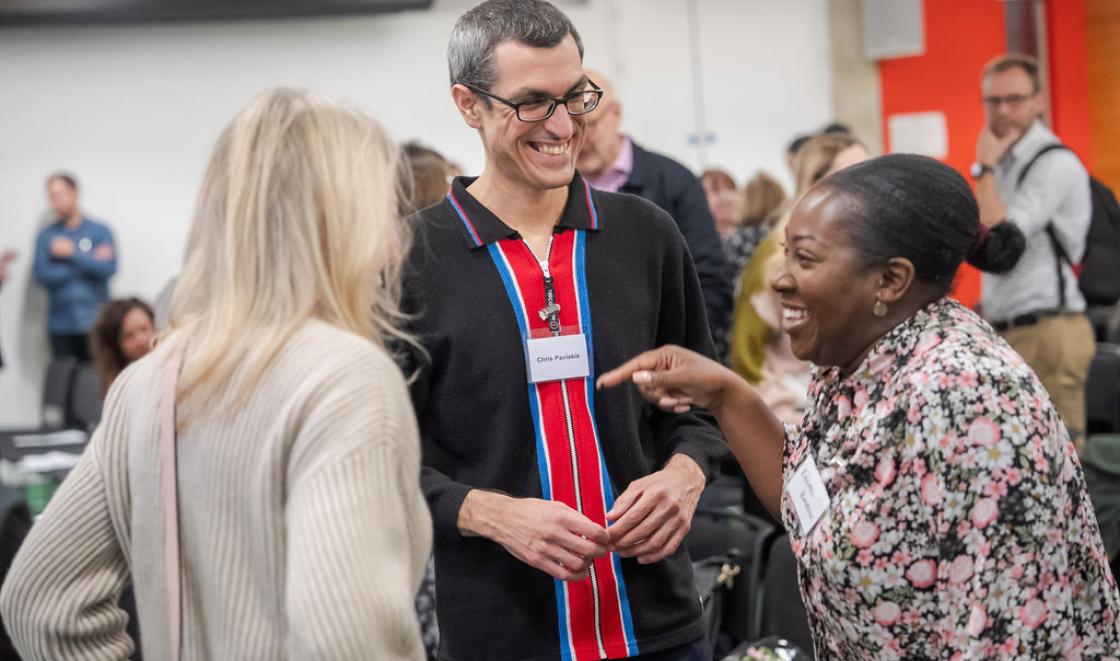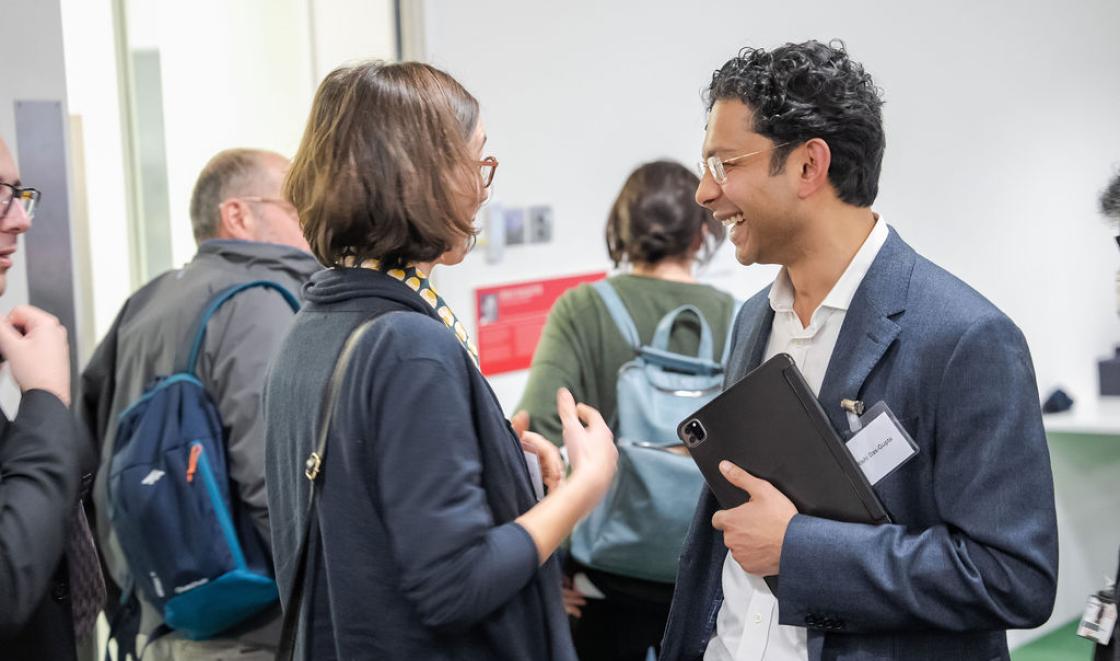After this, there was the Know your ARC 2022 awards, judged by a panel of independent experts, and co-chaired by Dr Rishi Das-Gupta, chief executive, Health Innovation Network and Dr Jayati Das-Munshi, clinical reader in social and psychiatric epidemiology at King’s College London.
In total, there were 48 entries across nine categories – thank you to everyone who put in applications. Many congratulations to the winners who were:
Theme awards:
Communicating your research
The maternity and perinatal mental health theme for their film ‘Gestational diabetes – one prick at a time’, developed by Dr Claire Wilson, capturing the experiences of those with gestational diabetes.
The judges said: ‘From the perspective of pure content creation for awareness raising, this is a fantastic and powerful entry’
Most innovative patient, public involvement and engagement activity
The palliative and end of life care research theme, including Dr Lisa Brighton, Professor Catherine Evans and the whole Public Involvement Strategy Group for co-developing a public involvement strategy strengthening the theme’s collaboration with diverse communities.
The judges said: ‘This was a well thought out implementation to include, innovate, involve and engage local community through mental health and major disease’.
